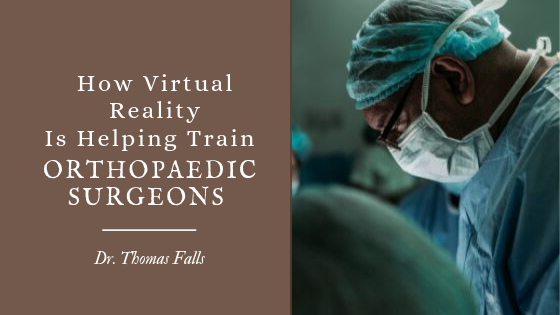Virtual reality (VR) is for more than just gaming. VR technology is being used to train a new generation of doctors in a variety of procedures, allowing them to get a much better understanding of the living human body and its functions that is possible through textbook or even cadaver work. Now, even surgeons are benefiting from this technological advancement. Below we explore how VR is being used to train orthopedic surgeons, helping them to increase their success rate by practicing dangerous and delicate operations in a realistic environment before cutting into a living person.
Virtual Training
The Johnson & Johnson Institute has launched a series of VR training programs aimed at helping orthopaedic surgeons and nurses perfect their skills before heading to the operating room. This training program aims to improve clinical outcomes for patients by helping physicians to practice and improve their surgical techniques in a safe environment.
Currently, there are three unique training modules available: Total knee replacement, total hip replacement with a direct anterior approach and hip fracture treatment with a proximal femoral nail. While more modules are expected to be released in the future, these three programs allow surgeons to refine their ability to perform some of the most common and difficult procedures currently being practiced.
Although the virtual procedures aren’t intended to replace surgical practice with an actual patient, they allow surgeons to cognitively prepare themselves for an actual surgery. These VR modules are designed to let surgeons go through the motions of each procedure, visualizing how the body looks and reacts during surgery and getting the hands-on practice that will help to give them the preparation and confidence to work on an actual patient. This system even provides haptic feedback in the form of vibrations when using surgical tools, making the whole educational experience as realistic as possible.
Other VR Training Providers
The Johnson & Johnson Institute isn’t the only company working on training surgeons through advanced VR technology. Other companies, such as Osso VR, are working hard to provide surgical students with realistic virtual experiences to help them sharpen their skills and improve surgical outcomes for patients. Osso VR focuses on helping surgeons train for a variety of procedures through virtual repetition and skills review, helping to reduce a new surgeon’s revision rate.
While the future of VR and healthcare training is still developing, one thing is certain. Generations of new surgeons and the patients they serve will be able to benefit from this unique training tool.

